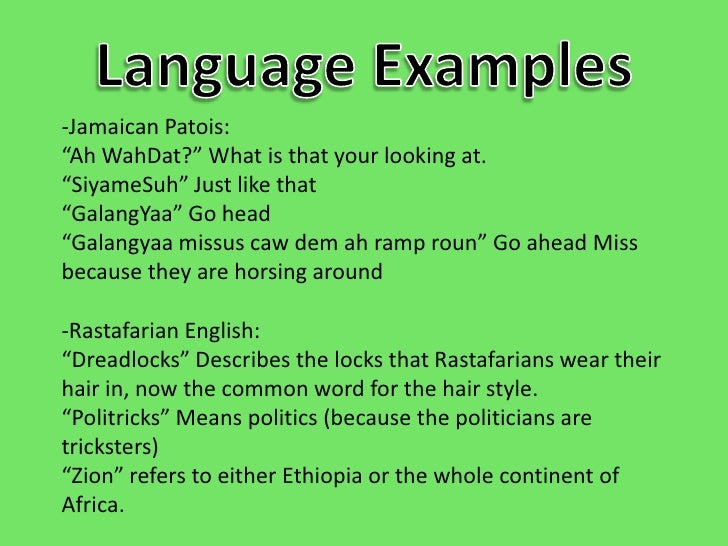

This project investigates the global spread of Jamaican Creole by analyzing its appropriation in specific reggae and dancehall contexts by non-native speakers from different European speech communities. Alleyne 2008 Cooper 2004) while there are hardly any sociolinguistic investigations of the transnational impact or appropriation of popular Jamaican music (e.g. Most studies on the globalization of reggae and dancehall have taken a cultural studies perspective (e.g. However, the main driving force behind the global spread of Jamaican Creole beyond Jamaican diaspora communities and online fora is the international success of Jamaican reggae and dancehall music. In their Cyber-Creole research project Mair and his colleagues extent this scope to the use of Jamaican Creole in globalized computer mediated communication (e.g. Most studies on the global spread of Jamaican Creole have focused on language use by native speakers in diaspora communities like London (Sebba 1993) or Toronto (Hinrichs 2011). However, in his World System of Englishes Mair (2013: 262-265) postulates that Jamaican Creole has become globally relevant as a super-central variety while the importance of Jamaican English is regionally confined to the Caribbean. Despite persisting efforts by Jamaican linguists to enhance the de jure status of Jamaican Creole, English remains the sole official language of Jamaica.

Jamaican Creole has increasingly become a symbol of national identity after the island’s independence in 1962 but a conservative linguistic ideology which discriminates Jamaican Creole as inferior to English has been retained. Jamaican Creole is the local vernacular of Jamaica and coexists with the island’s emerging local standard variety, Jamaican English. The global spread of Jamaican Creole: The sociolinguistics of globalization and the sociolinguistics of performance


 0 kommentar(er)
0 kommentar(er)
